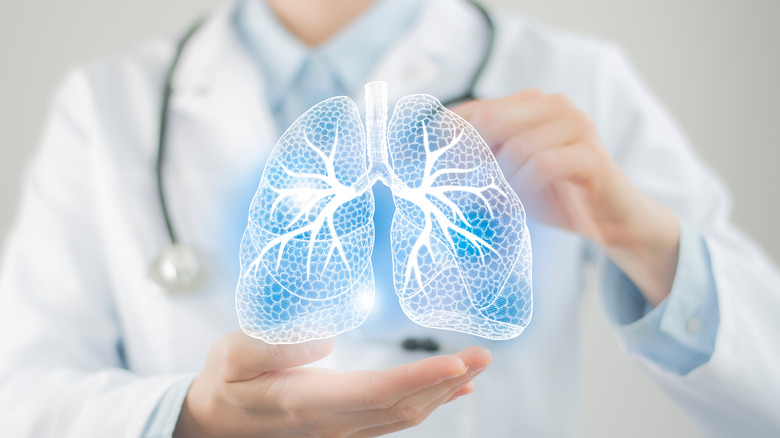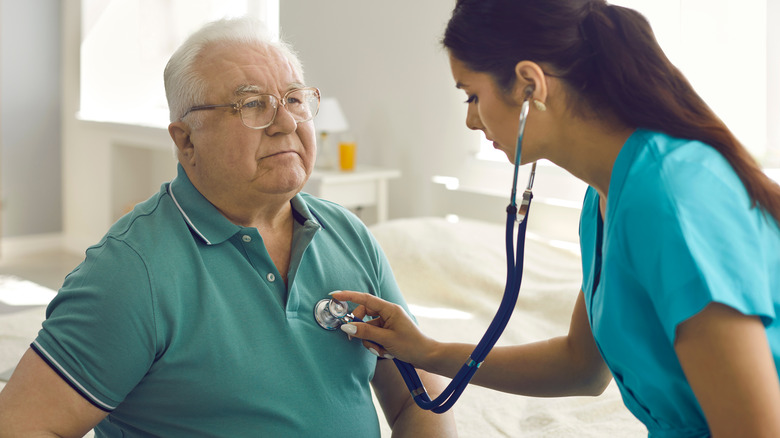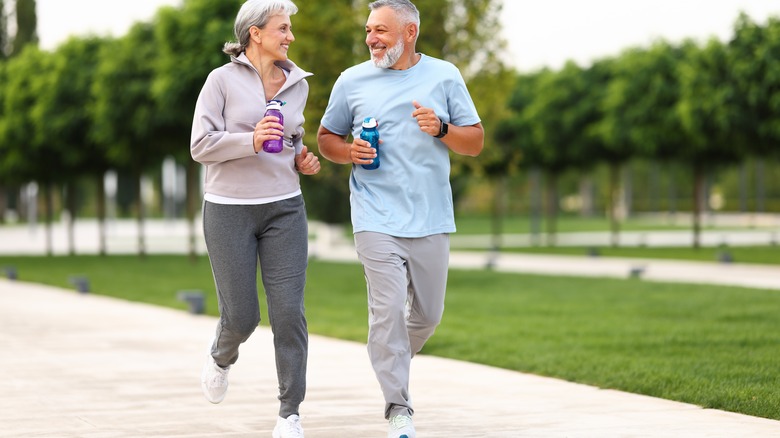What Happens To Our Lungs As We Age?
Our lungs are pretty amazing organs. They contain millions of air sacs, or alveoli, that work as filters, removing carbon dioxide from the air we inhale. But they don't work independently. The American Lung Association (ALA) explains that our lungs don't even have muscles. Instead, they depend on the diaphragm, a muscle between our lungs and abdomen, to help them contract and expand as we breathe in and out. The National Center for Biotechnology Information (NCBI) reports that the diaphragm is the most important muscle in the respiratory system. Our ribs also play a part in lung function, moving as we inhale and exhale, per ALA.
Like the rest of our bodies, our lungs age. According to the ALA, our lungs mature between the ages of 20 and 25, and function begins to decline slowly after the age of 35. That may sound surprising, but the NCBI reports that even with these changes, the respiratory system is capable of working adequately throughout a normal lifespan.
Several factors affect aging lungs
A number of factors affect lung function as they age. The alveoli become less firm and more saggy, and this could cause either a lack of oxygen or too much carbon dioxide in the bloodstream. As a result, breathing may become more difficult, per MedlinePlus. Other nerves in the lungs become weak with age and the lungs might not remove foreign particles as well as they used to. As these particles accumulate, they could damage the lungs, resulting in reduced lung capacity (via the ALA).
The ribcage also affects how our lungs function. As rib bones become thinner with age, they could alter the structure of the ribcage. This structural change might make expanding and contracting the lungs difficult, resulting in more strenuous breathing. In addition, the diaphragm becomes weaker as we age which can decrease our ability to inhale and exhale. That said, the ALA notes that most of us may only become aware of this condition when we exercise.
How to protect and strengthen your lungs
The good news is you can strengthen your lungs and the rest of your respiratory system to help decrease the effects of aging. One of the best things you can do is stop smoking. Smoking not only damages your lungs, but it also escalates how aging affects them, per MedlinePlus. You should also exercise regularly because that increases your lung capacity and keeps your muscles, including the diaphragm, strong. You should also avoid indoor and outdoor air pollution whenever possible, because that can harm your lungs, per the ALA.
Another thing you can do to help your lungs is to avoid lying in bed or sitting for long periods of time. Long periods of inactivity give mucus time to collect in the lungs, and that can increase the risk of lung infections (via MedlinePlus) and diminish lung capacity (via the ALA). Maintaining a healthy weight is also helpful because excess fat in the abdominal cavity can impact how the diaphragm works. You should also get regular checkups because lung conditions often go unnoticed until they are serious, according to the ALA.



